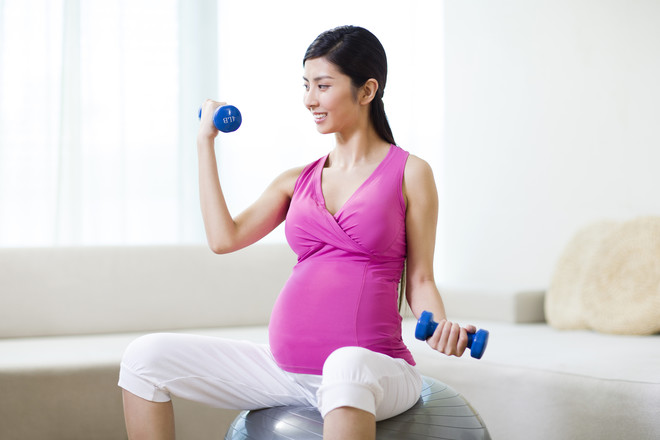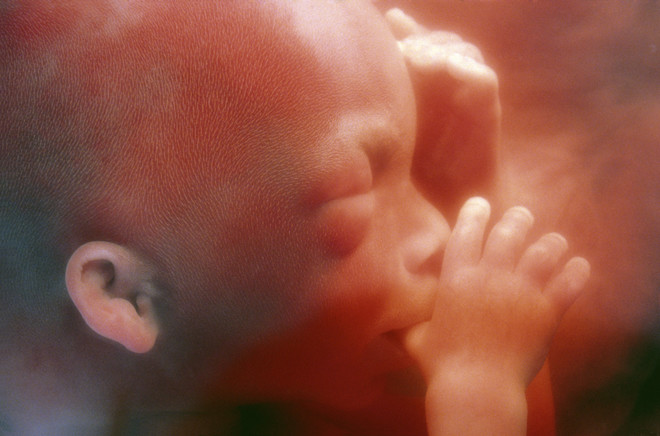What happens to the body of a woman
Despite the fact that the woman is already inthe second half of pregnancy, she can continue to exercise. Physical activity should be moderate, and some exercises that were previously easy to perform will have to be abandoned. At 23 weeks of pregnancy it is useful to continuetherapeutic exercise classesPhoto: GettyIt is important to know that physical activity during pregnancy is very useful. This can be therapeutic exercise, swimming, walking or yoga. Gymnastics accelerates the movement of blood throughout the body and prevents the appearance of edema. During pregnancy, edema is a fairly common phenomenon, if unwanted symptoms appear, you need to contact your doctor. Sleeping on your back during pregnancy becomes uncomfortable, it is much more comfortable to sleep on your side. This is explained very simply - the enlarging uterus compresses the vessels in the pelvic area, for example, the inferior vena cava. When lying on your back, the outflow of blood to the heart and upper body is disrupted in a woman, dizziness, weakness and headache begin. Therefore, for good health during pregnancy, it is useful to sleep on your side, using additional pillows for comfort.
At 23 weeks of pregnancy it is useful to continuetherapeutic exercise classesPhoto: GettyIt is important to know that physical activity during pregnancy is very useful. This can be therapeutic exercise, swimming, walking or yoga. Gymnastics accelerates the movement of blood throughout the body and prevents the appearance of edema. During pregnancy, edema is a fairly common phenomenon, if unwanted symptoms appear, you need to contact your doctor. Sleeping on your back during pregnancy becomes uncomfortable, it is much more comfortable to sleep on your side. This is explained very simply - the enlarging uterus compresses the vessels in the pelvic area, for example, the inferior vena cava. When lying on your back, the outflow of blood to the heart and upper body is disrupted in a woman, dizziness, weakness and headache begin. Therefore, for good health during pregnancy, it is useful to sleep on your side, using additional pillows for comfort.
Scheduled visit to the doctor at the 23rd week of pregnancy
If a woman has not yet undergone her second scheduled ultrasound,the doctor will prescribe it. This examination is done between the 20th and 24th week. During this period, it is easy to determine the degree of development of the child, notice deviations, if any, and adjust the further course of pregnancy. In most cases, the doctor will be able to see and tell the parents the sex of the future baby. To monitor the course of pregnancy, tests will be prescribed before the ultrasound. If swelling appears and protein is found in the urine, the doctor will recommend going to the hospital or having a more in-depth examination of the kidneys and urinary system. These symptoms cannot be ignored, as they cannot go away on their own. If a woman notices that she is gaining more weight than before, and the swelling has increased, she needs to undergo an examination. To prevent swelling, it is recommended to follow a few simple rules:
- observe the drinking regime - normally you need to drink about 1.5 liters of clean drinking water per day;
- Exclude the use of salted, fatty and fried foods;
- habitual sweets replaced with sweet fruits and dried fruits.
Early treatment of "dropsy of pregnant women", which is what excessive swelling is called, will make the course of pregnancy comfortable and safe.
23rd week of pregnancy - how the fetus develops
At this stage of pregnancy, the fetus weighs more than 450g, he approached or overcame the 0.5 kg mark. This is a great achievement. The baby's skin is no longer transparent, the subcutaneous fat is sufficiently developed, and the baby becomes plumper and prettier. What happens to the fetus at week 23 can be seenin the photo, he already knows how to suck a finger. Photo: Getty The heart of a baby grows to a sufficient size, a doctor can listen to the heartbeat not only during examination on ultrasound, but also with the help of an obstetric stethoscope. The proportions of the fetus at 23 weeks almost do not differ from the newborn child. His senses and respiratory system develop intensively. A woman sometimes feels rhythmic flinches inside the abdomen, it is hiccup of a crumb that has swallowed an amniotic fluid. It is interesting that the child is already seeing dreams. He becomes curious, feels himself, explores his little world, hears his mother's voice, the lullabies she sings. It can be frightened by a sharp noise, or too bright light.
What happens to the fetus at week 23 can be seenin the photo, he already knows how to suck a finger. Photo: Getty The heart of a baby grows to a sufficient size, a doctor can listen to the heartbeat not only during examination on ultrasound, but also with the help of an obstetric stethoscope. The proportions of the fetus at 23 weeks almost do not differ from the newborn child. His senses and respiratory system develop intensively. A woman sometimes feels rhythmic flinches inside the abdomen, it is hiccup of a crumb that has swallowed an amniotic fluid. It is interesting that the child is already seeing dreams. He becomes curious, feels himself, explores his little world, hears his mother's voice, the lullabies she sings. It can be frightened by a sharp noise, or too bright light.
Features of food
A pregnant woman at 23 weeks is not tormentedtoxicosis, she has a good appetite. Proper nutrition is now important for her and the baby. It is advisable to distribute meals evenly throughout the day, taking breaks of no more than 3 hours between them. A pregnant woman has an increased need for vitamins, proteins and some minerals, which must be taken into account when preparing a menu. The diet should include dairy products, vegetables, fruits, lean meat and fish. It is advisable to limit salt intake, because it retains water in the body. Regular salt can be replaced with high-quality soy sauce. In order for the child to develop normally and not experience oxygen starvation, the hemoglobin levels in the mother's blood should be normal. Therefore, a woman needs to include in the menu foods containing iron mineral salts - meat, buckwheat porridge, beef liver, this will help prevent anemia. Vitamin C improves the absorption of iron, it is useful to eat fresh vegetables and fruits that contain it. A lot of calcium is needed to form the child's bones, if there is a lack of it, the mother's teeth begin to decay. Calcium mineral salts are found in large quantities in dairy products, sunflower seeds, parsley, and egg yolks. You should definitely eat cottage cheese, eggs, and cheese two or three times a week. You can drink milk, yogurt, or kefir every day. To get half the daily calcium intake, it is enough to drink 0.4 liters of milk, eat 100 g of sunflower seeds, or 50 g of hard cheese. Week 23 is a favorable time when there is no toxicosis and the belly is not yet very big; it is useful for a woman to do therapeutic exercises and go swimming. Proper nutrition, rest and work schedule, and a good mood will help to avoid complications during the remaining prenatal period.
What happens when twins become pregnant?
This period corresponds to 5 months and threeweeks according to the obstetric schedule. Normally, twins weigh 555 grams each and are 28-29 cm tall. In a singleton pregnancy, the fetus weighs 608 and is 29 cm tall. The babies' faces are fully formed. The body and head become more proportional. The pancreas begins to work and insulin is produced. Babies can already hear noises inside, the mother's heartbeat. They are very active, they still have enough space to tumble. You can feel movement around the clock. Women during this period are full of strength and energy, but unpleasant symptoms can already begin: heartburn, constipation.









